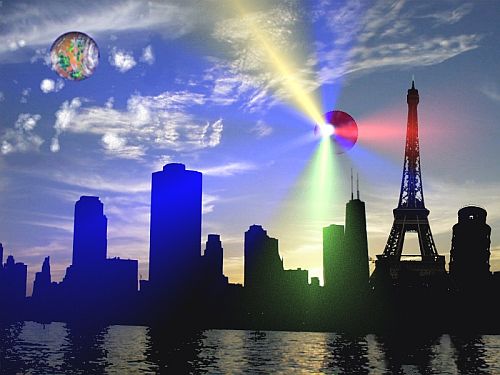Blackface is the practice of white performers to impersonate black persons on stage or in entertainment, mostly by painting the face and the skin of black. The origins of that are ancient, and for sure medieval. Some authors cite the mystery plays, others cite the miracle plays. Well, around the 11th century AD, actors started to utilize bitumen and coal, in order to resemble to devils, demons, damned souls, and so on. For that, you might hear a proverb that says “the devil is not as black as he’s painted”. How did blackface go from devils to black persons? It was a fruit of the wonderful imagination of William Shakespeare, author of the immortal tragedy titled “Othello”. Today, blackface suffers from a sort of ban, coming from political correctness, and reinforced by the movement Black Lives Matter. However, the ban is rooted into the American culture of the 30’s, when impersonating black persons was started to be felt as an unacceptable example of racism and bigotry. Nowadays, mocking a black person is classified as an act of cultural racism, even worse than racism itself.
Coming to music, there’s a genre named Blaxploitation, emerged in the USA in the early 70’s, and made of the soundtracks of an ethnic subgenre of exploitation films. In summary, black musicians have composed music about fictional black gangsters. Paradoxically, as it seems, not even black artist can mock black persons, without a sort of moral censorship. However, apart from moral condemnations, hundreds of pop songs are based on jokes about black persons, or exploit black persons for the purpose of making the lyrics more interesting. Yes, it is the musical equivalent of blackface.
Of course, the page serves to offer a significant example of blackface in pop music. However, before introducing that, I would like to propose an answer to the question contained in the title of the page. Previously, I remember the second commandment of Christianity, that recites “Thou shall not take the name of the Lord thy God in vain”. It means that mocking God is a mortal sin, while mocking a common human, like a black person, is a sin subject to be cleansed, in the opportune ways. What is a brief definition of racism? Racism consists of segregation, discrimination, and prejudice merely based on ethnicity, normally accompanied by power, legislative, public, or social. Naturally, people of color can respond to the definition and be racist, even if I’ve found web pages affirming that the cited correspondence “lacks of empathy”. Despite, sorry, I radically reject double moral standards, and to me rules are rules only when valid for anyone interested. Another leftist intellectual says that “freedom without empathy is destroying America”, because “there’s a lack of inner reflection”. More, they say that ironic racism in comedy is not funny, and is evaluable as “racial micro-aggression”. More, according to criticisms, the phrase “all lives matter” is nothing but a racial dismissal of Black Lives Matter, ignoring and denying facts. Now, my brief observations in the matter of sacralized anti-racism: preachers are many more than the martyrs; your moral law is in how you behave; I don’t need an aspiring oligarch who teaches me what is inner reflection; I need individual freedom, and not empathy. In conclusion, can you mock me without provoking a strong reaction? Not always. You can when your intentions are good, and when the joke is acceptable and amusing. The same is valid also for blackface in music. Nevertheless, sins are sins, and mocking someone is always a sin. To the other side, political exploitation of racism appears to me as a worse sin.
This time, the mix of the page is perfect for the blog, because contains a devilish mixture of details in the matter of black ethnicity. Moreover, the songs often belong to ironic racism, or to unaware racism. The second one is rather dangerous, more than brutal and explicit racism. The mix is a “volume 1”, dedicated to Italy, and excellent for those who want to verify how good is their knowledge of the Italian language.
File name is “blackface in music, vol.1 – Italy, by Max Look DJ (June 2024)”, 1 hour 27’ and 30” of Italian pop songs, danceable and dedicated to black persons. I believe that the content of the mix can’t offend intelligent persons. However, I feel the duty of warning my readers most sensible to racial aspects, that nowadays the mentalities of certain artists are considered racist.
About black persons, the playlist:
Caterina Caselli – tutto nero (paint it black) (1966)
Pitura Freska – papa nero (LP version, 1997)
Fausto Leali – angeli negri (1968)
Teresa De Sio – africana (1985)
Gianni Drudi – Africa salamelek (2006)
Marcella Bella – negro (1975)
Vasco Rossi – colpa d’Alfredo (1980)
Daniele Silvestri – Kunta Kinte (LP version, 2004)
Tullio De Piscopo – radio Africa (Club Mix, 1985)
Sandy Marton – camel by camel 12” (1985)
Orlando Portento – triccheballacche (la cammellata, 2006)
Alberto Radius – l’Africa è lontana (1985)
Cochi e Renato – il tucul
Mango – ti porto in Africa (2004)
Nuova Compagnia di Canto Popolare – tammurriata nera (1974)
Nino Ferrer – la pelle nera (1967)
Giuliano Palma and the Bluebeaters – black is black (2005)
Carlo Buti – faccetta nera (1935)
Los Marcellos Ferial – sei diventata nera (1964)
Edoardo Vianello – i Watussi (1963)
Renzo Arbore – cacao meravigliao (1988)
Ivano Fossati e Oscar Prudente – l’Africa (1973)
Walter Valdi – i Wahha Put-hanga (1970)
Nilla Pizzi e Luciano Benevene con il Duo Fasano – bongo bongo bongo (1947)

